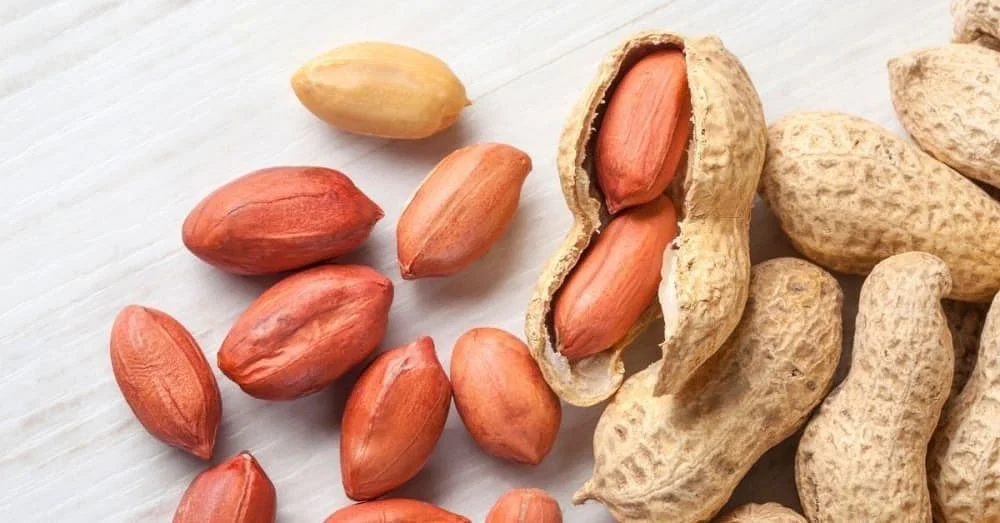Can Peanuts Boost Your Health? Here’s What the Experts Say

Peanuts are a beloved snack worldwide, enjoyed in various forms – from raw and roasted to peanut butter and peanut oil. While often underrated, peanuts offer a surprising range of health benefits that make them a nutritional powerhouse. But like many good things, moderation is essential. Overconsumption of peanuts can lead to certain health issues, so it’s important to enjoy them wisely. Here’s a closer look at the benefits of peanuts and why a balanced approach is key.
Peanuts: A Nutritional Powerhouse
- High in Protein and Fiber
Peanuts are an excellent plant-based protein source, providing about 7 grams of protein per ounce. This high protein content makes them ideal for muscle repair, growth, and as a satisfying snack. Additionally, they’re rich in dietary fiber, which supports digestive health and helps maintain stable blood sugar levels. - Packed with Heart-Healthy Fats
Unlike some nuts, peanuts contain mostly monounsaturated and polyunsaturated fats. These “good” fats have been shown to lower LDL (bad) cholesterol, which helps reduce the risk of cardiovascular diseases. The American Heart Association supports peanuts as part of a heart-healthy diet, making them a go-to choice for those mindful of their heart health. - Rich in Vitamins and Minerals
Peanuts are loaded with essential nutrients such as vitamin E, magnesium, and potassium. Vitamin E is a powerful antioxidant that supports skin health and immune function. Magnesium and potassium contribute to healthy bones, muscles, and nerve function. Additionally, peanuts contain B-vitamins, including niacin and folate, which are crucial for energy production and brain health. - Antioxidants and Anti-Inflammatory Benefits
Peanuts contain antioxidants like resveratrol (also found in red wine), which helps protect cells from damage and has anti-inflammatory effects. Regular consumption of peanuts can help reduce oxidative stress, a contributor to aging and various chronic diseases.
Why Moderation is Essential
While peanuts offer numerous health benefits, overconsumption can lead to certain issues:
- High Caloric Density
Peanuts are calorie-dense, with approximately 160-200 calories per ounce. Consuming large amounts can lead to weight gain, especially if they’re part of a high-calorie diet. This is particularly important for those watching their weight or trying to avoid excess caloric intake. - Potential Allergen Risks
Peanuts are one of the most common allergens. Even trace amounts can trigger severe reactions in some individuals, so they should be avoided if there’s a known peanut allergy. For non-allergic individuals, it’s still wise to monitor peanut intake, especially if other family members are sensitive. - Risk of Aflatoxin
Aflatoxins are naturally occurring toxins produced by molds, which sometimes contaminate peanuts due to improper storage. While most peanuts undergo rigorous testing, overconsumption increases the risk of exposure to these toxins, which are known to be harmful to liver health. - Digestive Discomfort
Peanuts contain phytic acid, a compound that can bind to minerals like iron and zinc, limiting their absorption in the body. While not typically an issue in moderate quantities, a high intake of peanuts can lead to digestive discomfort or nutrient deficiencies over time.
Peanuts and Weight Management
Peanuts have a unique effect on satiety – the feeling of fullness – due to their protein and fiber content. Research has shown that including moderate amounts of peanuts in a balanced diet can help with appetite control, which may support weight management goals. However, the key is portion control. Swapping a handful of peanuts for a more calorie-dense snack can benefit weight loss efforts, but large portions may have the opposite effect.
How to Incorporate Peanuts into a Balanced Diet
Here are some ways to enjoy peanuts healthily:
- Snack Smart: Limit servings to about a small handful, which is roughly 1 ounce or 28 grams.
- Opt for Unsalted, Unflavored Varieties: Processed peanuts often contain added salt, sugars, and unhealthy fats. Choose raw or dry-roasted peanuts without additives.
- Add to Meals for Extra Nutrients: Sprinkle peanuts over salads, oatmeal, or yogurt to boost the nutrient profile without relying solely on peanuts as a snack.
Peanuts, the Good and the Bad
Peanuts, when consumed in moderation, offer a wealth of health benefits, from supporting heart health to providing a solid source of protein, healthy fats, and essential vitamins. However, as with all foods, moderation is crucial. Overindulgence can lead to weight gain, digestive issues, and nutrient imbalances. Enjoying peanuts as part of a balanced diet can help you reap their many benefits while minimizing potential risks.
peanut health benefits, peanuts and heart health, benefits of peanuts, high protein snacks, are peanuts good for you, peanuts for weight loss, how many peanuts a day, side effects of eating too many peanuts, calories in peanuts, protein in peanuts, healthy snacking






